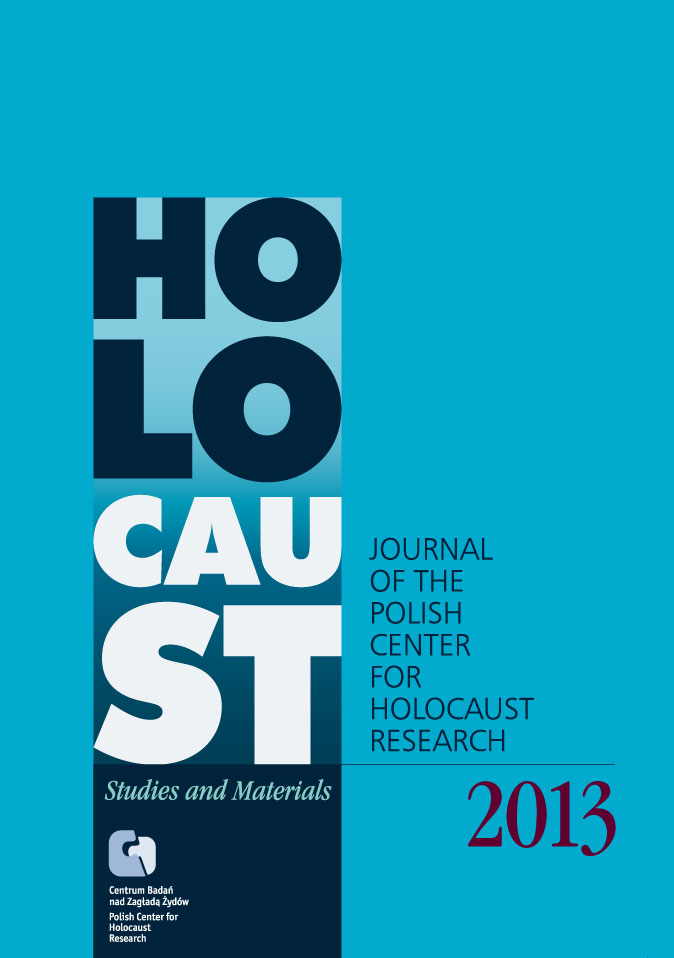Dreams as a Source for Holocaust Research
Zagłada Żydów. Studia i Materiały, No. Holocaust Studies and Materials (2013), pages: 223-252
Publication date: 2013-02-20
Abstract
Dreams are most often used during psychotherapy. Nonetheless, they can also be a historical source – a testimony to the experiences of specific people in a certain cultural context at a speciϐic moment in history. Dreams from the Holocaust period show the diversity of emotions experienced by the victims, their inexpressible experiences, and their longing for their relatives.
Keywords
Holocaust, Jews, dreams
License

This work is licensed under a Creative Commons Attribution-NonCommercial-NoDerivatives 4.0 International License.
https://creativecommons.org/licenses/by-nc-nd/4.0
Other articles by the same auhtor(s)
- Barbara Engelking, Jews and Communists in Occupied Warsaw , Zagłada Żydów. Studia i Materiały: No. 14 (2018)
- Barbara Engelking, Dreams as a Source for Holocaust Research , Zagłada Żydów. Studia i Materiały: No. 9 (2013)
- Jan Grabowski, Barbara Engelking, Warsaw Jews Expelled from Switzerland to the General Government , Zagłada Żydów. Studia i Materiały: No. 1 (2005)
- Barbara Engelking, Fleeing Stigmatization, Captivity, Hunger, and Death. Jews in Warsaw During the Occupation , Zagłada Żydów. Studia i Materiały: No. 18 (2022)
- Barbara Engelking, Hesia’s Secret. Emotions in Holocaust testimonies , Zagłada Żydów. Studia i Materiały: No. 10 (2014)
- Barbara Engelking, Labyrinths and Tangles. The story of a Righteous among Nations , Zagłada Żydów. Studia i Materiały: No. 11 (2015)
- Barbara Engelking, Israel Gutman, Barbara Engelking talks with Israel Gutman , Zagłada Żydów. Studia i Materiały: No. 9 (2013)
- Jan Grabowski, Barbara Engelking, Warsaw Jews Expelled from Switzerland to the General Government , Zagłada Żydów. Studia i Materiały: 2008: Holocaust Studies and Materials
- Dariusz Libionka, Barbara Engelking, Anki Grupińskiej zapisywanie żydowskich opowieści (12 opowieści żydowskich); Odczytanie listy. Opowieści o warszawskich powstańcach Żydowskiej Organizacji Bojowej , Zagłada Żydów. Studia i Materiały: No. 10 (2014)
- Feliks Tych, Barbara Engelking, About hidding on the Aryan side. Barbara Engelking talks with Feliks Tych , Zagłada Żydów. Studia i Materiały: No. 1 (2005)
 English
English
 Polish
Polish



